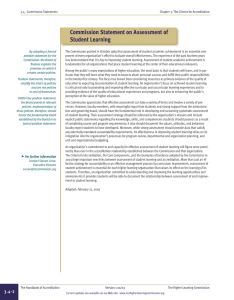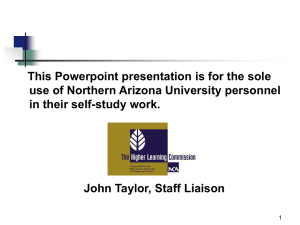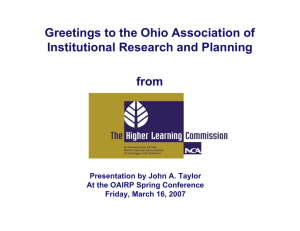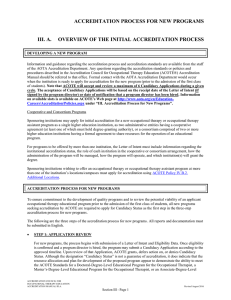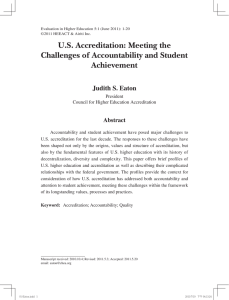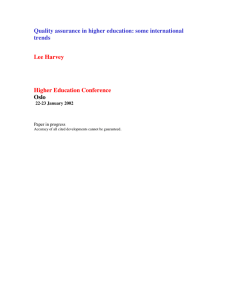The Higher Learning Commission
advertisement
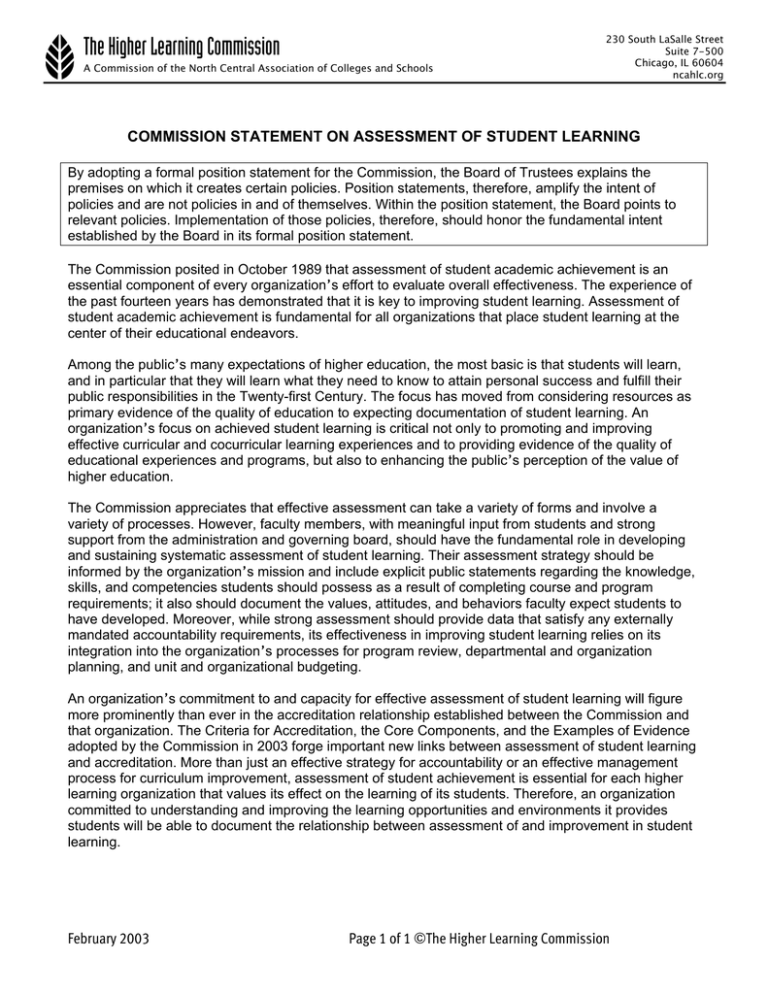
The Higher Learning Commission A Commission of the North Central Association of Colleges and Schools 230 South LaSalle Street Suite 7-500 Chicago, IL 60604 ncahlc.org COMMISSION STATEMENT ON ASSESSMENT OF STUDENT LEARNING By adopting a formal position statement for the Commission, the Board of Trustees explains the premises on which it creates certain policies. Position statements, therefore, amplify the intent of policies and are not policies in and of themselves. Within the position statement, the Board points to relevant policies. Implementation of those policies, therefore, should honor the fundamental intent established by the Board in its formal position statement. The Commission posited in October 1989 that assessment of student academic achievement is an essential component of every organization’s effort to evaluate overall effectiveness. The experience of the past fourteen years has demonstrated that it is key to improving student learning. Assessment of student academic achievement is fundamental for all organizations that place student learning at the center of their educational endeavors. Among the public’s many expectations of higher education, the most basic is that students will learn, and in particular that they will learn what they need to know to attain personal success and fulfill their public responsibilities in the Twenty-first Century. The focus has moved from considering resources as primary evidence of the quality of education to expecting documentation of student learning. An organization’s focus on achieved student learning is critical not only to promoting and improving effective curricular and cocurricular learning experiences and to providing evidence of the quality of educational experiences and programs, but also to enhancing the public’s perception of the value of higher education. The Commission appreciates that effective assessment can take a variety of forms and involve a variety of processes. However, faculty members, with meaningful input from students and strong support from the administration and governing board, should have the fundamental role in developing and sustaining systematic assessment of student learning. Their assessment strategy should be informed by the organization’s mission and include explicit public statements regarding the knowledge, skills, and competencies students should possess as a result of completing course and program requirements; it also should document the values, attitudes, and behaviors faculty expect students to have developed. Moreover, while strong assessment should provide data that satisfy any externally mandated accountability requirements, its effectiveness in improving student learning relies on its integration into the organization’s processes for program review, departmental and organization planning, and unit and organizational budgeting. An organization’s commitment to and capacity for effective assessment of student learning will figure more prominently than ever in the accreditation relationship established between the Commission and that organization. The Criteria for Accreditation, the Core Components, and the Examples of Evidence adopted by the Commission in 2003 forge important new links between assessment of student learning and accreditation. More than just an effective strategy for accountability or an effective management process for curriculum improvement, assessment of student achievement is essential for each higher learning organization that values its effect on the learning of its students. Therefore, an organization committed to understanding and improving the learning opportunities and environments it provides students will be able to document the relationship between assessment of and improvement in student learning. February 2003 Page 1 of 1 ©The Higher Learning Commission
